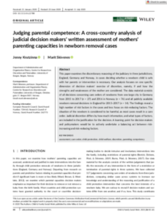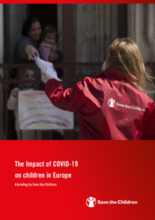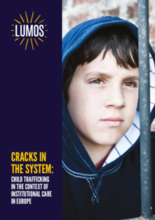

Displaying 81 - 90 of 423
The present study uses concept mapping as an exploratory method, to identify themes that seem to be used by two groups of professionals in their judgement and decision making on reunification.
This paper examines the discretionary reasoning of the judiciary in three jurisdictions, England, Germany and Norway, in cases deciding whether a newborn child is safe with her parents or intervention is necessary.
This study investigated Switzerland's first large‐scale care leaver programme and analysed associations between care leavers' needs and contactability in a sample of 459 care leavers.
In this webinar, hosted by Better Care Network and SOS Children's Villages International, panelists - including careleavers who served as co-trainers in the Leaving Care project - discussed the training, building a supportive network for care leavers, and the support needed to ensure that the rights of young people in alternative care are respected and that they are prepared for an independent life.
This study aims at examining if processes proposed by self-determination theory (SDT) are supported in a foster care sample.
The current exploratory study examined the associations of children’s attachment security, parental sensitivity, and child inhibitory control with reported and observed indiscriminate friendliness (IF) in 60 family-reared, never-institutionalized foster children.
This paper is divided into two parts: The first details the evidence from the ground, painting the picture of life for children during the pandemic in different European countries with statistics and examples, and giving a set of recommendations on measures that national governments across Europe can take to help protect children from the worst impacts of the crisis relating to the economic impacts on families, loss of services, access to education and targeted measures for children in migration. The second part focuses on recommendations to the EU institutions on how EU policy and funding can support and complement these national-level actions in these challenging times.
The authors of this study conducted a qualitative case study and obtained in-depth knowledge about the necessary professional competencies from the perspective of financiers, providers, practitioners, and participants across three cases of family and parenting support programmes in Germany and the Netherlands.
Cracks in the System is a new report from Lumos that is the first of its kind to systematically explore the links between institutional care and child trafficking in Europe.
FICE Israel decided to initiate a short survey to document and share information about the way different countries handled their policies and practices in residential care facilities during that period. This report presents findings and some conclusions from this primary survey.





